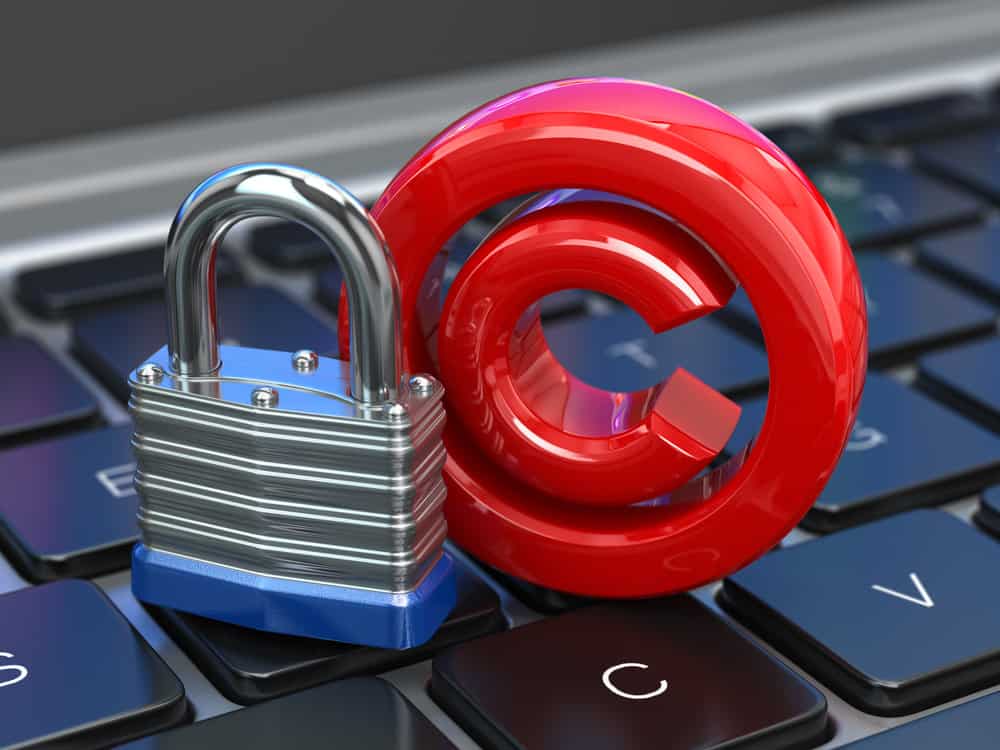In the digital age, protecting intellectual property can be a complex task. We’ve gathered insights from eight experts, including cybersecurity specialists and CEOs, to shed light on this. From embracing legal protections and cybersecurity measures to registering IP and maintaining confidentiality, discover the top strategies and pitfalls to avoid.
- Embrace Legal Protections and Cybersecurity Measures
- Ensure a Thorough Trademark Search
- Prioritize Up-to-Date Security Software
- Register, Document, and Monitor Your IP
- Strategize with Legal Security
- Implement Tiered Disclosure in Collaboration
- Limit Access with Non-Disclosure Contracts
- Secure Digital Assets and Regularly Backup
- Register IP and Maintain Confidentiality
Embrace Legal Protections and Cybersecurity Measures
In an era of rapid technological advancement, safeguarding intellectual property demands a proactive and multi-layered approach. Individuals should begin by securing their creations with appropriate copyrights, patents, or trademarks. Equally critical is maintaining strict control over digital assets through encryption, robust access controls, and regular monitoring. Embracing secure collaboration tools can enable distribution while protecting against unauthorized access.
A common pitfall to avoid is underestimating the importance of cybersecurity aspects, such as neglecting software updates and failing to stay current on emerging threats. In essence, a blend of legal protections, technological measures, and cybersecurity awareness forms the foundation for effective intellectual property preservation in the dynamic landscape of the digital age.
Colter Ets Hokin, Cybersecurity Specialist, Check Point Software Technologies
Ensure a Thorough Trademark Search
As a business owner, taking stock of your business’s intellectual property (IP) is important. There are various types of IP, including trademarks, industrial designs, patents, and copyright. Registering your IP will give you a competitive advantage as your business will receive exclusive rights over your trademarks, designs, inventions, and artistic works. For example, just as you invest in your business with advertising and marketing, registering your trademarks is another investment that provides value and protection for 10 years, and rights are renewable!
One common pitfall businesses can make when starting a new brand is that they don’t conduct a trademark search for the brand name they intend to use. Many think a trademark search is an extra cost that isn’t necessary. In reality, a trademark search can save you a lot of headaches and ensure you are not investing in a brand already taken.
Jennifer Sander, Canadian Intellectual Property (IP) Lawyer, Patent Agent, Trademark Agent, Sander Law
Prioritize Up-to-Date Security Software
Protecting your intellectual property in today’s digital age means choosing security software and consistently checking that it works.
While several cell phones have built-in virus protection, the same can’t be said for laptops and PCs. That’s why selecting an antivirus/security software and installing it is a good idea, especially if you like browsing the internet.
Up-to-date security software and operating systems work efficiently to patch any high-risk application or vulnerability. High-risk means that it would be easy enough to hack or have enough information to attract hackers.
ESET is recommended for laptops and computers. It keeps all data safe, regularly scans for viruses, and detects issues before they even begin, which you want in security software.
Bobby Lawson, Technology Editor/Publisher, Earth Web
Register, Document, and Monitor Your IP
To protect intellectual property in the digital age, individuals must prioritize the following measures:
File copyright, trademark, and patent applications for your inventions. Keep track of your intellectual property’s creation dates, revisions, and correspondence.
Use contracts that outline ownership and usage rights when sharing ideas or collaborating, particularly with freelancers or business partners.
Utilize robust passwords, encryption, and secure storage solutions to safeguard digital assets. Make frequent copies of your work.
Watch out for unauthorized use. Utilize digital tools to monitor usage and take appropriate action.
Neglecting paperwork is a common pitfall. In the event of a dispute, good documentation can uphold your case. Individuals can better safeguard their intellectual property in the digital environment by taking these precautions and remaining vigilant.
Jessica Shee, Senior Tech Editor and Marketing Content Manager, iBoysoft
Strategize with Legal Security
Protecting intellectual property in the digital age requires taking strategic steps. At our company, we put a lot of importance on registering patents, trademarks, and copyrights to give ourselves strong legal security.
From experience, it is known how important it is to protect our digital valuables using encryption and safe data storage. Most of the time, we use non-disclosure agreements to protect confidential information when we work together.
However, it can be a mistake not to conduct a thorough study before a product launch. This can accidentally lead to theft of intellectual property and expensive court fights. Disagreements can be avoided by conducting thorough research before starting new projects. When paired with strategic legal advice, this method ensures that innovation grows while minimizing risks.
Salim Benadel, Director, Storm Internet
Implement Tiered Disclosure in Collaboration
When collaborating, whether with partners, investors, or even employees, avoid sharing all the details of your IP at once. Implement a tiered, need-to-know approach to disclosure.
This will ensure that only those who truly need specific information will have access to it, thus reducing the avenues for potential leakage. The big mistake here is giving away too much information upfront, which exposes you to unnecessary risks.
Alex Freeburg, Owner, Freeburg Law
Limit Access with Non-Disclosure Contracts
Create non-disclosure and confidentiality contracts and limit the people who have access.
Registering your intellectual property for copyright, trademark, or patent is important. However, it won’t protect it if anyone who can access it can do whatever they want. Ensuring that people who can access the intellectual properties of a company are more responsible and discreet about it is crucial—and what’s a better way than asking them to sign non-disclosure agreements and confidentiality contracts? It’s not about not trusting people and partners entirely, but it’s to protect something valuable, so signing these contracts is necessary and non-negotiable.
Another strategy is only to let a few people access them, only if necessary for business operations. With limited access, these intellectual properties are more protected. And it’s easier to track the people who access them if they get leaked or copied.
Mark Damsgaard, Founder and Head of Client Advisory, Global Residence Index
Secure Digital Assets and Regularly Backup
In today’s digital age, individuals can best protect their intellectual property by taking proactive measures. One common pitfall they should avoid is neglecting to adequately secure their digital devices and online accounts.
For instance, a recent, uncommon example sheds light on the consequences of this negligence. In 2020, a prominent artist mistakenly saved all her unreleased artwork on an unencrypted USB drive without password protection. The USB drive was stolen, and within days, the thief uploaded the stolen art onto various platforms, claiming it as their own.
This incident showcases how failing to protect one’s digital assets can cause unauthorized distribution and claimed intellectual property ownership. Individuals should prioritize regular backups of their files on secured cloud storage platforms or external hard drives with encryption features to prevent such occurrences.
Steve Dinelli, Founder, MarketerInterview.com
Register IP and Maintain Confidentiality
This is the most important thing you can do to protect your intellectual property. Registration gives you legal ownership of your IP and makes it easier to enforce your rights if they are infringed. Keep your IP confidential. This means not sharing it with anyone who does not need to know about it.
You can use passwords, watermarks, and other security measures. Use a Creative Commons license. This can help you share your IP with others while still protecting your rights. Different licenses are available, so you can choose one that meets your needs.
Brenton Thomas, CEO, Twibi
Navigating the realm of intellectual property in today’s digital world can be a high-stakes game of strategy, awareness, and constant vigilance. Everyone has something valuable to protect, whether you’re an artist, business owner, or tech-savvy individual. Here’s a quick rundown on what you shouldn’t miss:
- Embrace Legal Protections and Cybersecurity Measures: Start with the basics, like digitally registering and locking your creations down.
- Ensure a Thorough Trademark Search: Ignoring this step can result in costly legal battles.
- Prioritize Up-to-Date Security Software: Your built-in phone antivirus is probably not enough.
- Register, Document, and Monitor Your IP: Good record-keeping is your best friend in a legal dispute.
- Strategize with Legal Security: Think long-term and make sure your legal bases are covered.
- Implement Tiered Disclosure in Collaboration: Share information cautiously and gradually.
- Limit Access with Non-Disclosure Contracts: Keep your circle tight and legally bound.
- Secure Digital Assets and Regularly Backup: Physical theft isn’t the only kind you need to worry about.
- Register IP and Maintain Confidentiality: This is your bedrock. Make sure you lay it down solid.
Pro Tips:
- Do Regular Audits: Periodically review who has access to your IP and adjust as needed.
- Stay Updated on Cybersecurity Trends: New threats emerge daily; don’t get caught off guard.
- Involve Professionals: IP lawyers and cybersecurity specialists can provide invaluable guidance.
The art of protecting intellectual property in the digital age is nuanced and ever-changing, but the strategies mentioned above provide a robust framework for safeguarding what’s yours. Take these tips to heart and consider them a toolkit for dodging pitfalls and securing your digital frontier.












